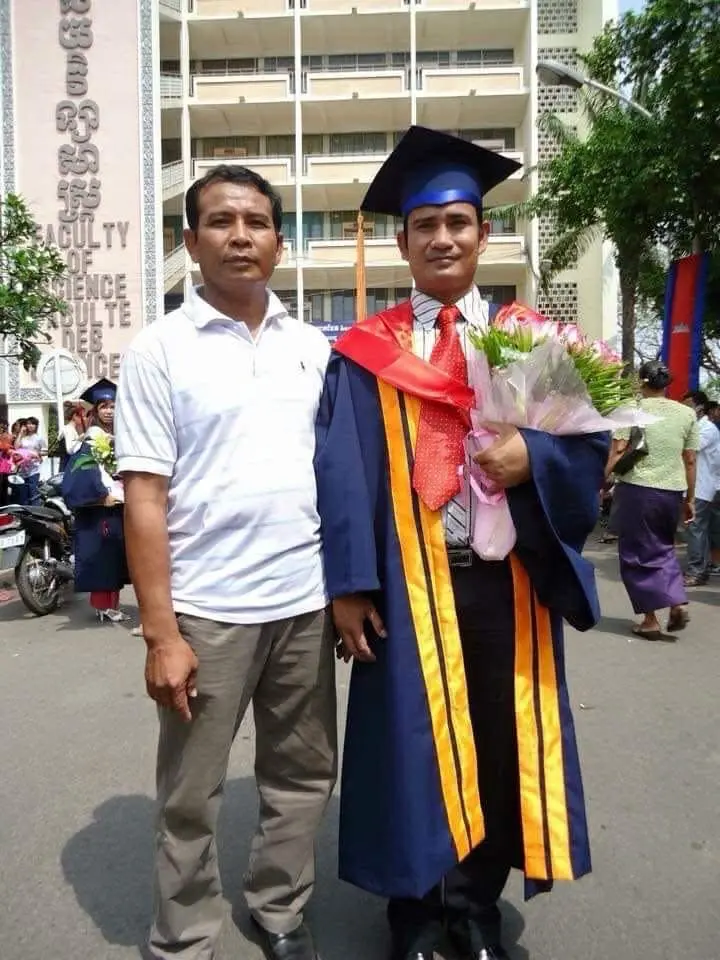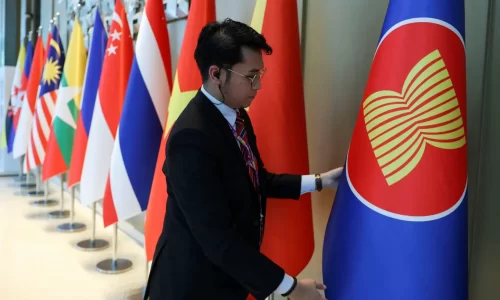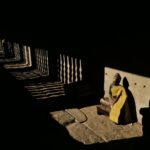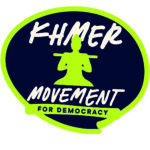Cambodia has taken my father hostage as part of Hun Sen’s war on democracy
- admin
- 0 Comments
By Sorn Dara
I am a Cambodian refugee living in France, having fled my country to avoid political persecution for my support for democracy.
The response of the Cambodian government controlled by Hun Sen and his son Hun Manet, who since 2023 has held the office of prime minister, has been to take my father hostage.
My father is called Sok Sunnareth. He is a retired military officer who has always supported the ruling Cambodian People’s Party. He has never agreed with my criticisms of the regime, and has even publicly disowned me because of my political views.
Sok Sunnareth was arrested in November by military forces in Cambodia’s southern Kampong Speu province. He is 70 years old and is being held at Kampong Speu provincial prison on a fabricated charge of drug trafficking.

In Cambodia, where I worked as a university lecturer, I was a supporter of the opposition Sam Rainsy Party since 2002. The party merged with the Human Rights Party, led by Kem Sokha, in 2012 to create the Cambodia National Rescue Party (CNRP). The CNRP, a peaceful, democratic party of opposition, increased its popularity so rapidly that it appeared capable of defeating the government in any free and fair election.
It was dissolved by the country’s politically controlled Supreme Court in November 2017. Kem Sokha, who had taken over from Sam Rainsy as the party’s leader, had already been arrested. Kem Sokha is now serving a 27-year sentence at his home, having been convicted on fabricated charge of treason for which no evidence was ever produced. Sam Rainsy was forced back into exile in France.
The end of the CNRP was the final nail in the coffin of the system of regular, free and fair elections in Cambodia laid down in the Paris Peace Agreements of 1991. These agreements were signed by the major powers in the region and globally, but democrats in Cambodia who took them seriously have found themselves imprisoned, killed, or exiled with the permanent threat of transnational repression.
The agreements also laid down that Cambodia would follow neutrality in its foreign policy. The Cambodian government was reported by the Wall Street Journal in 2019 to have breached this requirement by allowing China, on which it relies for financial support, to build a naval base at Ream in Cambodia. The Cambodian government has denied those claims. Today, it is urgent for the signatories to the Paris agreements to reconvene to assess how proper implementation of the treaty can be achieved. France and Indonesia, which played important roles in making the agreements possible, again need to take the lead.
The banning of the CNRP meant that national elections in 2018 and 2023 took place in the absence of any recognized opposition party. Yet this did not mean the end of the public conversation about Cambodia’s future. A legacy of the Khmer Rouge years in the 1970s is that Cambodia has a global diaspora totalling about 2 million people, spread across Asian countries such as Thailand and South Korea, as well as Australia, North America and Europe. The Khmer Movement for Democracy, led by US-based former CNRP vice president Mu Sochua, continues the struggle for Cambodian democracy in the diaspora.
I fled Cambodia after Kem Sokha was arrested. I am certain that I would have been arrested or killed had I remained in the country. I now live in Lyon in France, where I have been trying to retrain so that I can work in information technology. I’ve kept up my criticism of the regime through broadcasting on my Facebook page, which has over 200,000 followers. Almost all Khmer and English-language media in Cambodia is controlled by the government, so social media provides some of the few remaining platforms via which Cambodian political discussion is possible.
With dissent impossible inside Cambodia, transnational repression has come to the fore as the next stage of the dictatorship’s attempts to quash all public political discussion. International indifference to this tactic means that Hun Sen has not needed to conceal his actions. In May 2023, he openly threatened my relatives in Cambodia and publicly told me “don’t complain that I am taking your relatives as hostages.” The arrest of my father is simply Hun Sen following through on this threat.
Hun Sen has waged a war on democracy for decades. He wants a North Korean style hermit kingdom with no voices of dissent. No matter how many people he arrests, the size of the diverse, global Cambodian diaspora means that this will never be possible.
The government must free my father, who has done nothing wrong. He needs medical supervision which is not available in prison, and my mother needs specialist counselling and support. They need the help of the international community to be allowed to access this specialist help. Beyond that, the world’s major powers must prioritize Cambodia as an international issue and assess how to salvage the 1991 treaty which seemed briefly to promise a better future.
Please find the newsletter by clicking on this link



